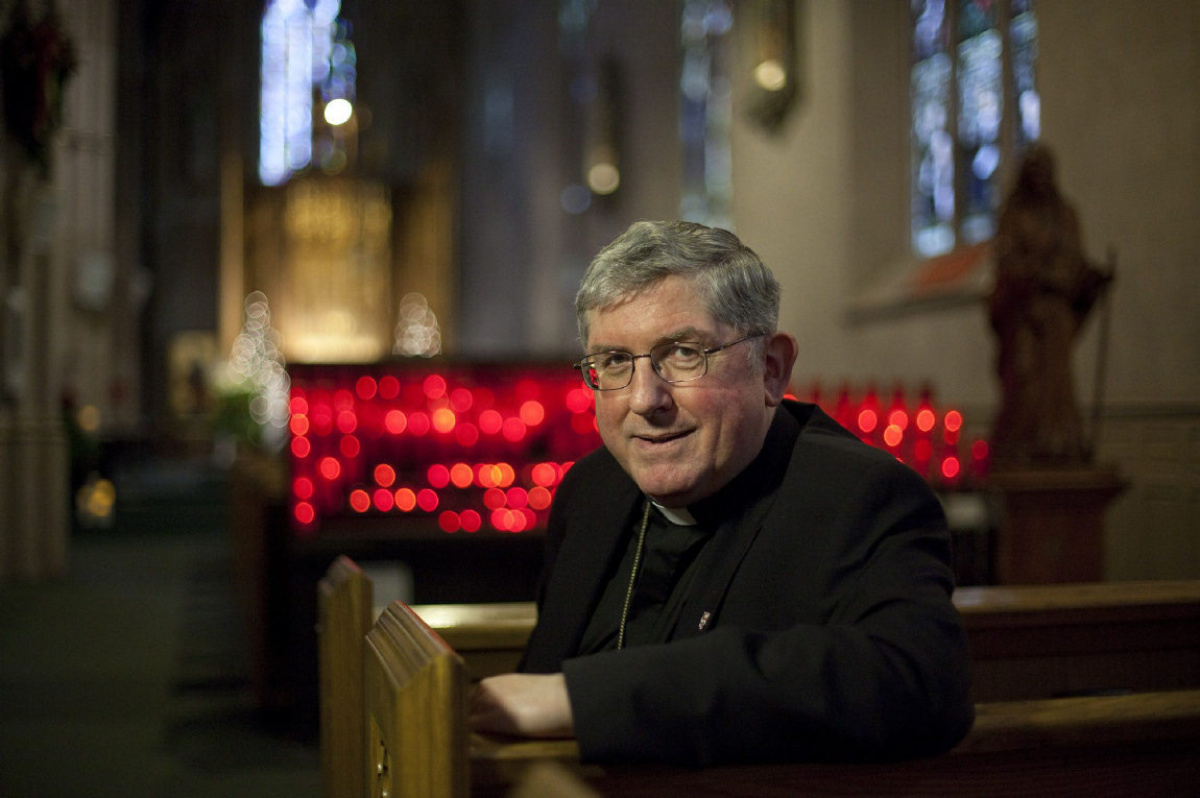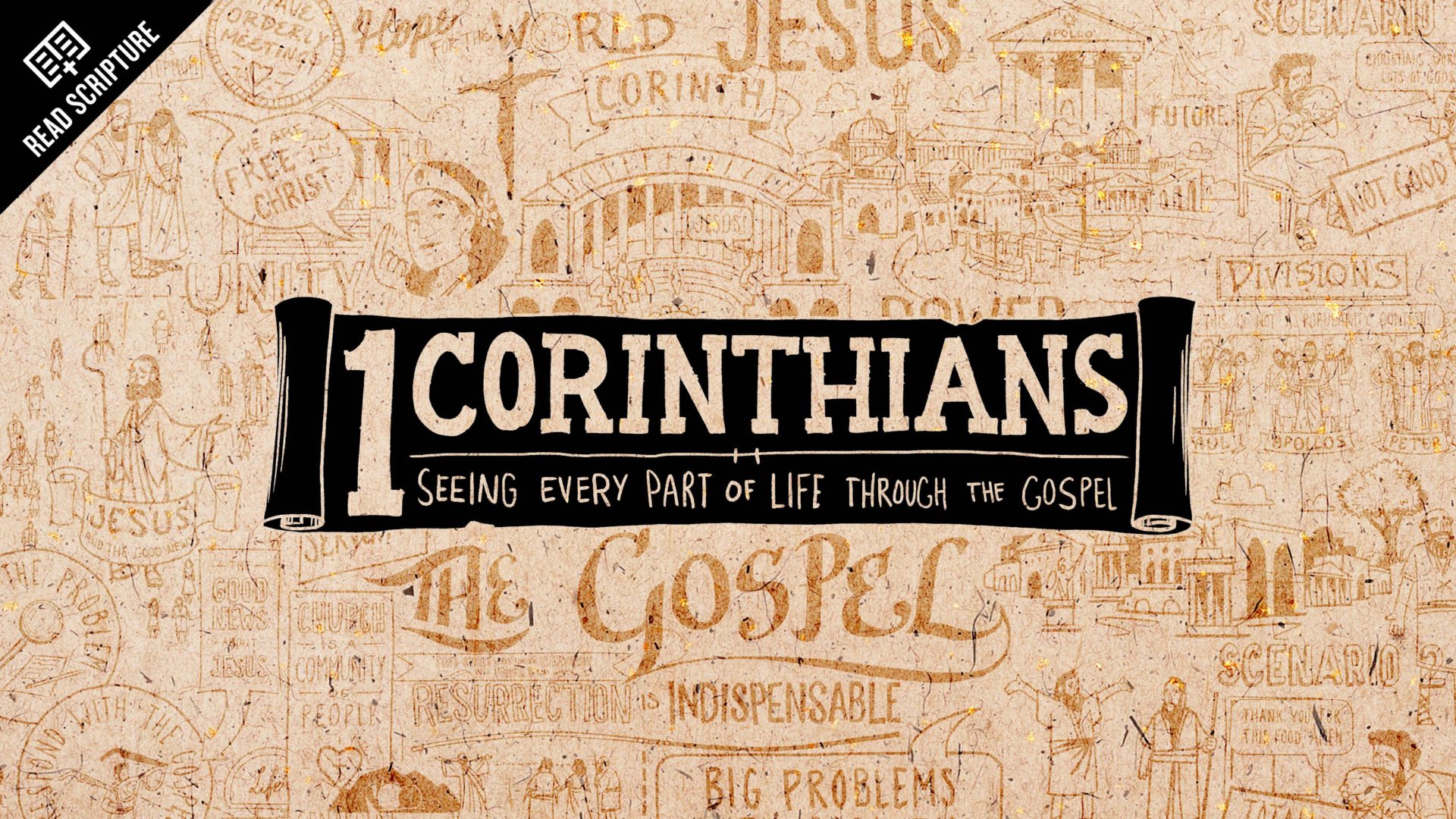What made the great persecutor of the Christian faith its greatest propagator? The best explanation is that the resurrected and glorified Jesus appeared to Saul the Pharisee, who became better known as the Apostle Paul.
Posts
 Cardinal Thomas Collins, Archbishop of Toronto, penned a powerful letter today to Canadian Prime Minister Justin Trudeau regarding the Trudeau government’s regrettable recent decision to donate $650 million to international organizations that promote abortion and contraception.
Cardinal Thomas Collins, Archbishop of Toronto, penned a powerful letter today to Canadian Prime Minister Justin Trudeau regarding the Trudeau government’s regrettable recent decision to donate $650 million to international organizations that promote abortion and contraception.
The full text of the Cardinal’s letter is below:
The Right Honourable Justin Trudeau
Prime Minister of Canada
House of Commons, Ottawa
March 10, 2017
Dear Prime Minister Trudeau,
I am writing to express my deep concern and disappointment at your government’s decision to provide $650 million to support “sexual and reproductive health programs” globally. While it is commendable and necessary to foster initiatives that further the rights of women and young girls worldwide, your public comments suggest that unless a woman has access to abortion or contraception, she is not empowered or able to realize her full potential.
I simply remind you and your colleagues that we have no rights at all unless we are afforded the right to life. That decision was made for you and for each one of us by a woman, determined and committed to bring a new life into this world.
It is praiseworthy to offer international aid; it is arrogant for powerful, wealthy nations to dictate what priorities developing countries should embrace. Pope Francis has cautioned the rich and powerful West against the danger of “ideological colonization,” in which such countries and organizations offer funding to help further a particular social agenda. Do we empower women by making sex selective abortions more accessible? Money spent on promoting abortion and contraception could be spent on vaccinating millions of women and girls against malaria or other diseases. $650 million could help build a lot of schools or universities, pathways to knowledge for future female leaders of our world.
Our country could learn from a number of inspiring examples of outreach and care that support women worldwide. Very often these programs are offered by faith-based, non-governmental organizations, which are usually the first to arrive and the last to leave any area of crisis or need. They understand the reality of the local situation, and respect the dignity of the people who live there.
Canada is blessed with prosperity and a wealth of resources. Surely we can do better than imposing a distorted vision of the empowerment of women on the people of countries that deserve our support to respond effectively to the challenge of their most pressing needs.
I would welcome the opportunity to speak with you regarding this critically important issue.
Sincerely yours,
Thomas Cardinal Collins
Archbishop of Toronto
I have to think that, at some level, this is Trudeau’s response to President Trump’s decision to pull U.S. federal funding for abortion-provider Planned Parenthood on an international level. And if I were you, I wouldn’t hold your breath waiting for the PM to give His Eminence a call to chat about this. Ostensibly Catholic, Trudeau is, as one prelate described him, “a 19th-century, anti-Catholic secularist, wearing the garb of a metrosexual millennial”.
Having said that, even Justin Trudeau is not beyond the transformative reach of Christ. We should pray for his conversion, especially this Lent. In the New Testament, Saint Paul urges us to pray for government leaders: “Therefore I exhort first of all that you make supplications, prayers, intercessions, and thanksgivings for everyone, for kings and for all who are in authority, that we may lead a quiet and peaceful life in all godliness and honesty, for this is good and acceptable in the sight of God our Saviour” (1 Tim. 2:1-3). It’s worth remembering who was the Emperor at the time of Paul’s writing: the crazed Nero, who had Christians thrown to the lions and burned as human torches.
Trudeau is not crazed, as Nero was. Let us pray that he reads the Cardinal’s letter with goodwill and openness to reason, and regains belief in the sanctity of all human life, and human rights for all humans. As the noted philosopher Dr. Seuss put it: “A person’s a person, no matter how small”.

In this Sunday’s second reading, once again we hear from St Paul’s 1st Letter to the Corinthians (1:26-31). This section builds on Paul’s teaching about the wisdom of the cross. Here’s what he wrote just prior to the verses selected for today’s reading:
Where is the wise man? Where is the scribe? Where is the debater of this age? Has not God made foolish the wisdom of the world? For since, in the wisdom of God, the world did not know God through wisdom, it pleased God through the folly of what we preach to save those who believe. For Jews demand signs and Greeks seek wisdom, but we preach Christ crucified, a stumbling block to Jews and folly to Gentiles, but to those who are called, both Jews and Greeks, Christ the power of God and the wisdom of God. For the foolishness of God is wiser than men, and the weakness of God is stronger than men (1 Cor 1:20-25).
This passage has a lot of implications for how we present the Gospel in today’s society. Richard Hays notes that, if apologetics can be done at all, we cannot take as our starting point the questions that modern men and women ask, and then try to provide satisfying Christian “answers” for them. In truth, those answers will never satisfy them, whether they be Jews or Greeks. Rather, we must present to them the person of Jesus.
We also, as Hays notes, must focus on the apocalyptic dimension of Jesus’ death and resurrection. Jesus didn’t die simply to forgive our sins, but to “destroy the old age and bring the new into being”. And one of the things God does in this “new age” is overturn the social apple cart, as it were. And it’s here that today’s second reading comes into play:
For consider your call, brethren; not many of you were wise according to the flesh, not many were powerful, not many were of noble birth; but God chose what is foolish in the world to shame the wise, God chose what is weak in the world to shame the strong, God chose what is low and despised in the world, even things that are not, to bring to nothing things that are, so that no flesh might boast in the presence of God. He is the source of your life in Christ Jesus, whom God made our wisdom, our righteousness and sanctification and redemption; therefore, as it is written, “Let him who boasts, boast of the Lord” (1 Cor 1:26-31).
The Church in Corinth was a mixed bag, a motley crew of rich and poor, educated and, in the world’s eyes, ignorant. Obviously, some of the members of the Corinthian congregation were wealthy (the early Church, having no public buildings, relied on some of its more well-heeled members to provide meeting space for worship in their private homes). And education and wealth in themselves are not bad things. They can be used to bring oneself and others closer to Jesus, “in whom are hidden all the treasures of wisdom and knowledge” (Colossians 2:3).
But their material wealth did not make them better than anyone else in the eyes of God, before whom all stand as equals in Jesus’ new world order. In fact, “God chose” to shame the wise, strong, and powerful of this world by creating “ex nihilo” (the actual term used by Paul in v. 28) a new, apocalyptic community, just as he once created the present universe out of nothing.
No one belongs to this community because they deserve it. It is sheer Grace. God created and called us to this new society called the Church. And for this, we are eternally grateful.

Once again, this Sunday’s second reading is from 1 Corinthians, and once again it’s from chapter 1 (vv. 10-13, 17). There were real divisions in the congregation that were very worrying to St Paul. Peter Kreeft once noted that Paul was horrified by the beginnings of a sort of “Protestantism” in Corinth. It isn’t a bad analogy at all – many early Protestant movements came to be identified with the particular individual who founded it – Lutheranism (Martin Luther) and Calvinism (John Calvin) are two examples that immediately spring to mind.
In Corinth in the first century, members of the Church were aligning themselves behind various leaders, too. They weren’t leaving the Church per se in order to do that, but these actions still had a very divisive effect. Catholics were forming various “camps” based on which leader they preferred, whether that was Paul, Apollos (a very eloquent preacher in the early Church who had spent some time in Corinth – for more on him see Acts 18:24-28), or Cephas (the Apostle Peter – “Cephas” is “Peter” in Aramaic). Some seemed to reject any merely human leadership, claiming to belong solely to Jesus Christ, without need of any Church intermediaries.
Some representatives of a “parishioner” in Corinth (“Chloe’s people”) had gotten word about this state of affairs to Paul, who at the time was in Ephesus. He was incredulous and extremely disappointed. He thunders, “Is Christ divided? Was Paul crucified for you? Or were you baptized in the name of Paul?” He urges them in the strongest words possible (“in the name of our Lord Jesus Christ”) “that all of you agree in what you say, and that there be no divisions among you, but that you be united in the same mind and in the same purpose.” Christ must be the centre, and human leaders are only useful inasmuch as they point people not to themselves, but to Jesus.
How can we apply Paul’s warning to us today?
Today, just as in the first century, Catholics are just as tempted to create “cults of personality” centred around human leaders, whether they be bishops, priests, professed religious, or laypeople. There are also people who foolishly believe that they can have full access to Jesus without the Church. How do we deal with such problems? I would suggest two remedies – one for all of us, and one for those in leadership.
First, for all Catholics – we must recognize that the basis of our belief is the one Person of Christ. This is what unites us: “one Lord, one faith, one baptism”, as Paul writes elsewhere (Ephesians 4:3-5). Secondly, leaders must purify their intentions. Why do we do what we do? Is our intention solely to give glory to God, or to ourselves? Humans are always a “mixed bag” of motives to some extent, but our neither our motives nor our message should revolve around ourselves. Paul himself sets the example, as he notes in today’s reading: Christ sent him to “preach the gospel, and not with the wisdom of human eloquence, so that the cross of Christ might not be emptied of its meaning.”

Over the next few weeks, the second reading at Sunday Mass will be taken from Saint Paul’s First Letter to the Corinthians (1 Corinthians). This week, we read the first few verses of chapter one:
Paul, called to be an apostle of Christ Jesus by the will of God,
and Sosthenes our brother,
to the church of God that is in Corinth,
to you who have been sanctified in Christ Jesus, called to be holy,
with all those everywhere who call upon the name of our Lord Jesus Christ, their Lord and ours.
Grace to you and peace from God our Father
and the Lord Jesus Christ.
(1 Cor 1:1-3)
Here’s some background on the letter. As scholar Richard Hays points out, anytime we read one of the New Testament letters, we are really reading someone else’s mail! Of course, these documents have been canonized as sacred scripture, and are indeed the Word of God. So, there is always a message from the Lord for us when we read them. But in another sense, as Hays notes, Paul probably would have preferred that some of the “issues” the believers of Corinth were dealing with were not broadcast to the ages. There’s a lot of embarrassing stuff here – everything from sexual immorality within the congregation, to lawsuits among church members, to divisions, factions and personality cults; and much more.
Thankfully for us, this letter was preserved, because it reminds us that there really was no “golden age” in Church history, even in the beginning, where everything was perfect and all were perfectly holy. We in today’s Catholic Church are still dealing with the same old sins. Human nature is no different. “The more things change, the more they stay the same”, as the saying goes. We can use Paul’s letter to figure out how best to deal with problems like these in today’s Church.
And thankfully for us, God’s grace is still just as powerful now as it ever was back then. God is still in the business of salvation and redemption. As Paul notes in today’s reading, the Corinthians (and us) are “sanctified in Christ Jesus, and called to be holy” (1 Cor 1:2).
But, what does being called to holiness really mean?
This Sunday’s Gospel (John 1:29-34) reminds us that Jesus pours out the Holy Spirit on us in Christian baptism. And our baptism calls us to two things, which can never be accomplished without the help of God’s powerful Spirit : 1) Holiness (becoming a saint); and 2) Apostolate (sharing our faith and helping others to become saints, too). Let’s focus briefly on the first point, that of holiness.
As one writer is fond of saying, becoming a saint means becoming “the best version of yourself”. It also means becoming more like Jesus Christ, who is “the way, the truth, and the life” (John 14:6). It is Jesus’ truth and life poured through our unique personalities, situations, and vocations. But we must cooperate with Jesus in this process. God does the heavy lifting, of course, but it doesn’t happen without effort and willingness on our part.
As St. Josemaria Escriva wrote:
“They have the stuff of saints in them.” At times you hear this said of some people. Apart from the fact that the saints were not made of “stuff”, to have “stuff” is not sufficient. A great spirit of obedience to your (spiritual) Director and great readiness to respond to grace are essential. For, if you don’t allow God’s grace and your Director to do their work, there will never appear the finished sculpture, Christ’s image, into which the saintly man is fashioned. And the “stuff” of which we were speaking will be no more than a heap of shapeless matter, fit only for the fire…for a good fire, if it was good “stuff”!
(The Way, No. 56).

This Sunday is the Church’s “New Year’s Day”, as it were. It’s not only the first Sunday of Advent, but also the beginning of a new liturgical year in the Church. It’s a great time to start over, start fresh, and try to live our faith better. So, as we make our Catholic “New Year’s resolutions” about how to live Advent well, we need to keep some important points in mind:
The first thing we need to remember is that the season of Advent is not the season of Christmas! This is very difficult for us to do, because our culture has completely forgotten this truth. The culture at large wants to either A) eliminate all religious references to the season at all – for example, calling it simply the “Holiday Season”, or B) celebrating Christmas prematurely, within the season of Advent.
In the first case (A), cultural relativism – with a particularly virulent hatred for Christianity – seeks to eliminate all references to the divine at this time of year. But we really can’t escape the truth. Even the word “holiday” actually means “holy day”.
However, for Catholics, the second problem (B) is much more of a temptation. It has become quite common for people to “pull back” the feast of Christmas into Advent. The Church teaches us that Advent is actually (much like Lent) a season of penitential preparation for the great Feast of Christmas. This is one reason why many dioceses have an annual “Advent Confessions Day”, just as in Lent. This is also why Mass readings during Advent focus on the Second Coming of Christ and the Great Judgment – we need to put our lives in order and be ready to meet the great King.
The Church even encourages fasting during Advent. Without a fast, there can be no feast at Christmas. Other penances, like prayer and giving to the needy, get us spiritually ready for Christmas (cf. CCC 1434).
In stark contrast, cultural practices like office Christmas parties and other festive gatherings prior to Christmas encourage sumptuous feasting – and tragically, in so many cases, dissolute and downright dreadful debauchery. One should take to heart the words of Saint Paul from this Sunday’s second reading:
Brothers and sisters: You know the time; it is the hour now for you to awake from sleep. For our salvation is nearer now than when we first believed; the night is advanced, the day is at hand. Let us then throw off the works of darkness and put on the armor of light;
let us conduct ourselves properly as in the day, not in orgies and drunkenness, not in promiscuity and lust, not in rivalry and jealousy. But put on the Lord Jesus Christ, and make no provision for the desires of the sinful nature (Romans 13:11-14).
Prayer, penance, and preparation. That’s the recipe for living Advent well. The great Feast of Christmas will be all the sweeter for us as a result.

In this Sunday’s Second Reading (33rd Sunday in Ordinary Time), we heard Saint Paul address the Thessalonians:
Brothers and sisters:
You know how one must imitate us.
For we did not act in a disorderly way among you,
nor did we eat food received free from anyone.
On the contrary, in toil and drudgery, night and day
we worked, so as not to burden any of you.
Not that we do not have the right.
Rather, we wanted to present ourselves as a model for you,
so that you might imitate us.
In fact, when we were with you,
we instructed you that if anyone was unwilling to work,
neither should that one eat.
We hear that some are conducting themselves among you in a
disorderly way,
by not keeping busy but minding the business of others.
Such people we instruct and urge in the Lord Jesus Christ to work quietly
and to eat their own food.
– 2 Thessalonians 3:7-12
Saint Paul is extremely forceful and commanding in his instructions to the Thessalonians here – and, by extension, to us. He speaks to both wrongdoers and the congregation as a whole with power: “We command and exhort you…in the name of our Lord Jesus Christ”. This is the strongest language Paul could have used. And what does Paul command? That certain people in the congregation stop being “disorderly” (which is sometimes translated as “idle”).
It’s not necessarily the case that these people were idle in the sense of being inert or slothful – “couch potatoes”, as it were. In fact, it appears they were quite “busy” in their own way – but not in a good way. They were being what Paul calls “busybodies”. That is, they were spending a lot of time and effort “meddling in the affairs of others” – literally, “minding other people’s business”. The so-called “work” that they were doing was not at all productive or helpful for the community. Rather, it was downright disorderly and harmful.
One is reminded of a maxim from Saint Josemaria Escriva:
You are untiring in your activity. But you fail to put order into it, so you do not have as much effect as you should. It reminds me of something I heard once from a very authoritative source. I happened to praise a subordinate in front of his superior. I said, “How hard he works!” “You ought to say”, I was told, “ ‘How much he rushes around!’”
You are untiring in your activity, but it is all fruitless…How much you rush around!
– Furrow, 506
Mere “busyness” can actually be a hidden form of laziness and love of comfort, not to mention disorderliness. Sure, a person can be running around, doing a whole bunch of “stuff” – but they are not the things the person ought to be doing.
There is also the very real temptation of being a “busybody” in another sense – that of being a gossip. This has always been a temptation whenever and wherever people live together, but it is a constant temptation in parish life – for both clergy and laity. As disciples of Jesus Christ, we simply must stop speaking about others behind their backs.
Saint Paul set the Church a powerful example in this regard, by doing hard, constructive, and productive work (in his case, as a tentmaker). He provided for his own needs, and even those of others, so that he was not dependent on anyone else (cf. 1 Thess. 4:11-12). Although, as an apostle, Paul could have received his living from the congregation, he chose not to. He did this so that he could provide a model for how his disciples should live in the world as Christians.
Saint Paul shows that work well done for God’s glory in any honest profession is the “hinge” of our sanctification in the world. We can sanctify our work, we can sanctify ourselves through our work, and we can also sanctify others through our work.

“Sunday Scriptures” is a series of posts explaining the Sunday Mass readings – helpful for those preparing to worship, or preparing a homily!
In this Sunday’s Second Reading we hear:
We ask you, brothers and sisters, with regard to the coming of our Lord Jesus Christ
and our assembling with him, not to be shaken out of your minds suddenly, or to be alarmed either by a “spirit,” or by an oral statement, or by a letter allegedly from us to the effect that the day of the Lord is at hand.
– 2 Thessalonians 2:1-2
Paul wrote this because some people in the first-century Thessalonian church were absolutely obsessed with the Second Coming of Jesus – so much so that they had even quit their jobs! They expected Jesus’ imminent return to earth, with the final judgment to ensue (this is what “the day of the Lord” means in the Bible).
This had the effect of greatly upsetting other members of the congregation, who were, as Paul writes, both “shaken” and “alarmed”. To top it all off, the false teachers were claiming they were inspired by a “spirit” about these things. Some even claimed that Paul himself had taught this – hence the reference to an alleged “statement” from Paul. They even went so far as to forge a letter from Paul to this effect!
Paul goes on in the letter to set things straight about what must occur before the Second Coming. First, the mysterious “man of lawlessness” must be revealed – a figure identified with the Antichrist (2 Thess 2:3-12; for much more on this see CCC 668-79).
Paul also teaches believers how to live in the meantime. Specifically, they should heed Paul’s advice in his earlier letter to them (known as 1 Thessalonians). He warns them to stop being freeloaders, spending all their time gossiping, and tells them to get to work (see 2 Thess 3:6-14). Paul himself had set them a great example while he was with them. Rather than accepting money from the congregation for his apostolic endeavours (though he had every right to), he diligently worked “night and day” at his outside job (tentmaking) to provide for his own needs and those of others (2 Thess 3:8). In so doing Paul gives witness that one of the best ways to prepare for the afterlife is not to idly speculate about it, but to work diligently and live virtuously in this world.
 “Sunday Scriptures” is a series of posts explaining the Sunday Mass readings – helpful for those preparing to worship, or preparing a homily!
“Sunday Scriptures” is a series of posts explaining the Sunday Mass readings – helpful for those preparing to worship, or preparing a homily!
What does the Church mean when she says that the Bible is the “inspired” Word of God?
In this Sunday’s second reading, we read the following, as Saint Paul writes to his young protege, the bishop Timothy:
Remain faithful to what you have learned and believed, because you know from whom you learned it, and that from infancy you have known the sacred Scriptures, which are capable of giving you wisdom for salvation through faith in Christ Jesus. All Scripture is inspired by God and is useful for teaching, for refutation, for correction, and for training in righteousness, so that one who belongs to God may be competent, equipped for every good work.
I charge you in the presence of God and of Christ Jesus, who will judge the living and the dead, and by his appearing and his kingly power: proclaim the word; be persistent whether it is convenient or inconvenient; convince, reprimand, encourage, through all patience and teaching.
– 2 Timothy 3:14-4:2
The important phrase to note is: “All Scripture is inspired by God”. The New Testament was, of course, originally written in Greek. The Greek word that is translated as “inspired” in our English new Testament is the word theopneustos. This word, in turn, is really made up of two other words: Theos, which means “God”, and pneu, which means “to breathe”. Thus, theopneustos literally means, “God-breathed”, and this is what is meant by the English word “inspired”.
In the first book of the Bible, we read that God “breathed” his life into Adam (Genesis 2:7), making him a “living soul”. This gave Adam participation in God’s life. This is related to Scripture, because divine inspiration is very much like divine respiration in Adam’s case – what is very human becomes filled with the life of God. The human words of the Bible are filled with the life and message of God.
Further, the word for “breath” in Hebrew (ruah) is the same word used for God’s Holy Spirit. When we are dealing with the “God-breathed” (inspired) Word of God, that means that God the Holy Spirit is the principal author of Scripture. The human beings who actually wrote the 73 books that collectively make up the Scriptures are called the instrumental authors of Scripture (Saint Paul, for example). They were the means, the instruments God used. These authors did not go into a trance when they wrote. They used their personal freedom, intelligence, education, cultural background, and personalities when they composed the sacred Scriptures. But God superintended the process in a providential manner, ensuring that what he wanted to communicate to us in human language made it into the Bible.

Today’s first reading is selected from Acts 17, which chronicles St Paul’s visit to Athens. Paul’s brilliant, culturally relevant preaching of the Gospel in the Areopagus didn’t convert everyone, outstanding though it was (the illustration of the “unknown God” was inspired – quite literally!).
This should encourage all who proclaim the Word (many people didn’t listen to Jesus himself, either). We do see, though, in the responses to Paul’s message, three common responses that all who proclaim the Gospel encounter:
God has overlooked the times of ignorance,
but now he demands that all people everywhere repent
because he has established a day on which he will ‘judge the world
with justice’ through a man he has appointed,
and he has provided confirmation for all
by raising him from the dead.”
When they heard about resurrection of the dead,
some began to scoff, but others said,
“We should like to hear you on this some other time.”
And so Paul left them.
But some did join him, and became believers.
Among them were Dionysius,
a member of the Court of the Areopagus,
a woman named Damaris, and others with them.
-Acts 17:30-34
Some scoffed. Some said, “Let’s hear more about this later”. But some believed. And so it goes, even today.
Which camp are you in?

